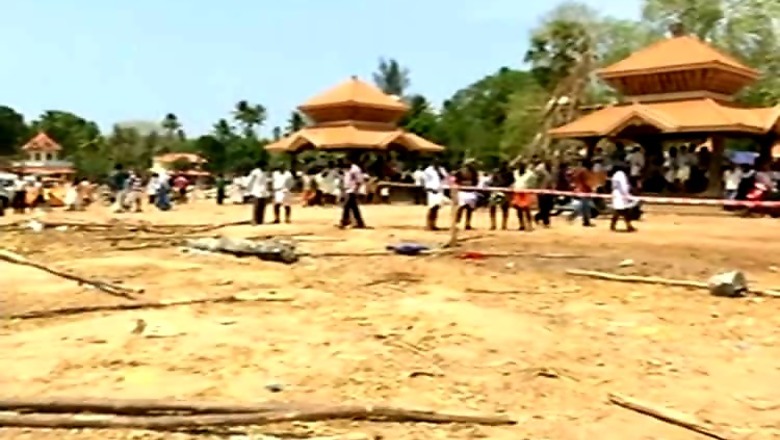
views
Uday Vijayan
As news poured in on the large-scale human tragedy, I was filled with sadness, anger and frustration.
Sadness, because as a father who had also lost a son in a fire accident, I could immediately relate to what each of those families were going through.
Anger, because like most fire accidents this too was highly avoidable, only if guidelines were followed.
Lastly, I am frustrated that we as a nation don't put a premium on public safety.
Let's move away from Kollam and look at India's public safety statistics.
A quick look at accidents in India in 2014 indicates that in 2014, 4,51,757* Indians died due to accidents. This means 52 Indians die every hour due to accidents, which is a 12.8% rise over 2013. These accidents are a combination of natural and unnatural causes.
Unnatural accidents account for 36 deaths every hour in India.These unnatural accidents are mostly due to negligence by authorities and us. It includes road accidents, drowning, accidental fires, falls, electrocution.
Road accidents in 2014 accounted for the largest number of deaths.
A total of 1,41,526 deaths were in road accidents, which means we lose 387 Indians daily. A staggering statistic! Fire accidents accounted for 19,513 deaths in 2014, which means around 53 people die due to fire accidents daily in India.
So, what do these statistics tell us? That we are vulnerable - whether we are on the road, living in our apartments or in a high-rise office.
Here are some quick and obvious reasons for the mess we are in:
1. Urbanisation and its challenges: With more and more Indian cities bursting at the seams, it clearly shows our urban planners had never planned for this explosion. The huge migration from smaller towns and villages in search of jobs has seen a strain on the urban infrastructure. So, we now have more vehicles on roads than ever before and a city infrastructure unable to keep pace. We can hope that smart cities address some of these issues.
2. Casual mindset towards safety – As a nation, we seem to put very little premium on life and our own safety. How often do we see two-wheeler riders avoid using helmets, high-rises not having adequate fire prevention systems and people avoid wearing seat belts in their cars. Why do we take action only when a policeman hauls us up or is seen in the distance? Mind you, a lot of these defaulters are well educated and have travelled the world. It almost seems they lack education and understanding in keeping themselves and their families safe. We need a systemic change here to see safety as a priority and not wait for the next fatality in our family.
3. Inefficient local bodies and authorities – How often do we hear that local authorities who are meant to monitor safety aren't doing their jobs? While one does recognize that most of these entities are political battlefields, poorly managed, corrupt, inefficient and unprofessional, there is a growing desperate need to deliver services to citizens.
4. Archaic laws not in pace with our world today Most of these entities have archaic laws that haven't kept pace with the growth of our urban centres. An example, in Karnataka we had heard the Karnataka fire department was not authorized to enter buildings and check for violations. It took an initiative from a citizen's body like Beyond Carlton to file a PIL and get this corrected through a court order. Why did citizens have to step in? It is time our lawmakers delivered the needs for today's Indian cities.
All is not lost. Growing citizen participation is slowly making some change in our urban deliveries. But, it also needs you, as a citizen, to believe safety is paramount to you, your family and your friends. Don't wait for the next fatality or serious injury to take care of your safety or your family's. You could be the next statistic in a report otherwise. Wear that seat belt, the helmet and ensure you follow fire safety norms in your building. You may just save your own life or a close one's.
After all, who knows when the next accident or a Kollam fire can happen!
(Authored by Uday Vijayan, Founder & Managing Trustee of Beyond Carlton (www.beyondcarlton.org) India's first people's initiative on fire safety. Uday lost his young son in the Carlton Towers fire in 2010)
** Statistics quoted from National Crime Records Bureau Report 2014 on Accidental Deaths and Suicides


















Comments
0 comment